New Delhi: The Ministry of Electronics and Information Technology (MeitY) has released the draft Promotion and Regulation of Online Gaming Rules, 2025, marking a major step in regulating India’s rapidly growing online gaming sector.
The draft Promotion and Regulation of Online Gaming Act, 2025, invites comments and suggestions from stakeholders until 31 October that can be sent to ogrules.consultation@meity.gov.in.
Ministries to Oversee Promotion of E-Sports and Social Games
The draft rules divide responsibilities among ministries for different categories of gaming. For example, the Ministry of Youth Affairs and Sports will administer provisions related to the recognition and promotion of e-sports, including registering e-sports titles.
The Ministry of Information and Broadcasting will oversee the promotion and development of online social games, with powers to issue codes of practice or guidelines to classify such games for recreational, educational or skill-development purposes, ensuring safe and age-appropriate content.
Establishment of the Online Gaming Authority
A central feature of the framework is the creation of the Online Gaming Authority of India, a statutory body headquartered in the National Capital Region. The Authority will act as a body corporate, capable of holding property and entering into contracts, and will primarily function as a digital office while retaining the power to summon individuals and conduct inquiries.
The Authority will be chaired by an Additional Secretary-level officer from MeitY, with three Joint Secretary-level members representing the ministries of Information & Broadcasting, Youth Affairs & Sports and Financial Services.
In addition, two members of at least Director rank, including one with legal expertise, will serve alongside. A Secretary (not below Director rank) will assist the Authority, which can also consult outside experts.
Powers and Functions of the Authority
The Authority will determine whether an online game qualifies as a money game, social game, or e-sport. It will maintain a National Online Social Games and E-sports Registry, issue directions to providers, inquire into user complaints and coordinate with law enforcement and financial institutions. The body can also impose penalties, cancel or suspend registrations and publish lists of money games prohibited under the law.
The Authority will have powers equivalent to a civil court, including summoning witnesses, seeking evidence, inspecting documents and issuing commissions. Its proceedings will be deemed judicial under Indian law.
Any appeal against the Authority’s orders, including those on game determination, registration, cancellation of certificates, or penalties, will lie with the Appellate Authority, designated as the Secretary of MeitY. Appeals must be filed within 30 days, and the Appellate Authority is expected to resolve them within 30 days, guided by principles of natural justice rather than strict civil procedure.
Determination, Registration and Suspension
Game providers must apply digitally for recognition of their titles. The Authority will determine whether a game involves wagering elements and thus qualifies as a money game. If declared a money game, the provider will be ordered to cease operations and related advertisements or promotions will be prohibited.
Applications for online social games will be processed within 90 days, while e-sport registrations require prior recognition under the National Sports Governance Act, 2025. Registered games will be granted a Certificate of Registration, valid for up to five years and listed in the national registry.
Registrations can be cancelled if a game undergoes material changes, making it a money game, if providers repeatedly violate directions, or if they fail to maintain recognition under sports law.
The Authority may also suspend certificates in cases of false statements, non-payment of penalties, or failure to comply with orders. Suspension orders must be reviewed periodically and providers will be allowed to respond before permanent cancellation.
Penalties and Enforcement
The rules empower the Authority to initiate inquiries into non-compliance either suo moto or upon complaints.
Penalties may include monetary fines, suspension or cancellation of registrations and prohibition from offering services. Recovery of penalties will be treated as arrears of land revenue, and the proceeds will be credited to the Consolidated Fund of India.
Factors such as the scale of user harm, financial gain and the gravity of violations will be considered when determining the quantum of penalties.
It should be noted that when the Act was passed in the Parliament, it laid down stringent penalties for violations, with offences classified as cognizable and non-bailable.
It was stated that offering or facilitating online money games can invite imprisonment of up to three years, a fine of up to Rs 1 crore, or both. Advertising such games will attract up to two years of imprisonment or fines of up to Rs 50 lakh, while financial facilitation of money games will carry penalties of up to three years’ imprisonment and fines of up to Rs 1 crore.
As per the draft Act, repeat offenders face harsher mandatory minimums, with punishments extending to five years’ imprisonment and fines reaching Rs 2 crore. Companies will also be held liable for violations and directors or managers can be personally prosecuted if offences are committed with their knowledge or consent.
Grievance Redressal Mechanism
The newly released draft rules highlighted that every registered game provider must establish a grievance redressal system to handle user complaints. If grievances remain unresolved, users can escalate them to the Grievance Appellate Committee under the IT Rules, 2021.
From there, unresolved cases can be referred to the Authority itself, which may issue directions, order remedial measures, or impose penalties for non-compliance. Appeals at each stage are expected to be disposed of within 30 days.
Experts stated that the new law will ban all real-money games that apply to domestic and offshore operators, with measures like blocking platforms, restricting transactions, banning ads and enabling searches and seizures.
They also noted that the Act is expected to clearly separate harmful online money games from safe and legitimate forms of gaming. By criminalising real-money games and at the same time supporting e-sports and social games, the legislation aims to encourage responsible gaming and innovation in India’s gaming ecosystem.
With responsibilities distributed across ministries, a powerful central authority, and defined mechanisms for penalties and grievance redressal, the framework seeks to balance innovation with consumer protection.











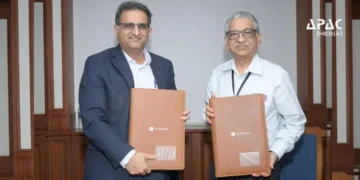
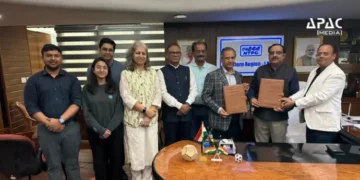









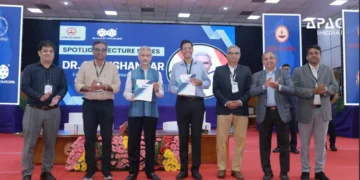





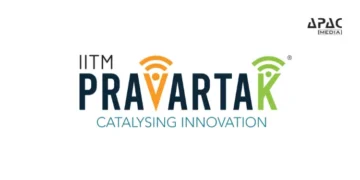
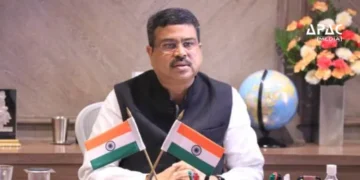










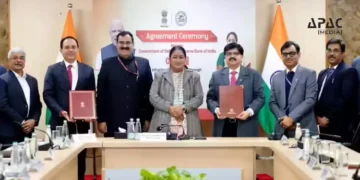



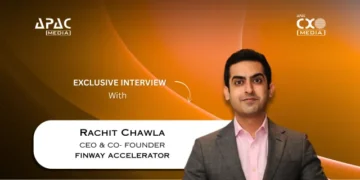
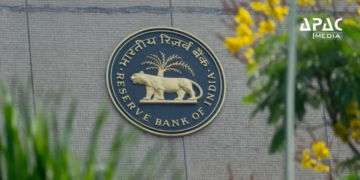























Discussion about this post